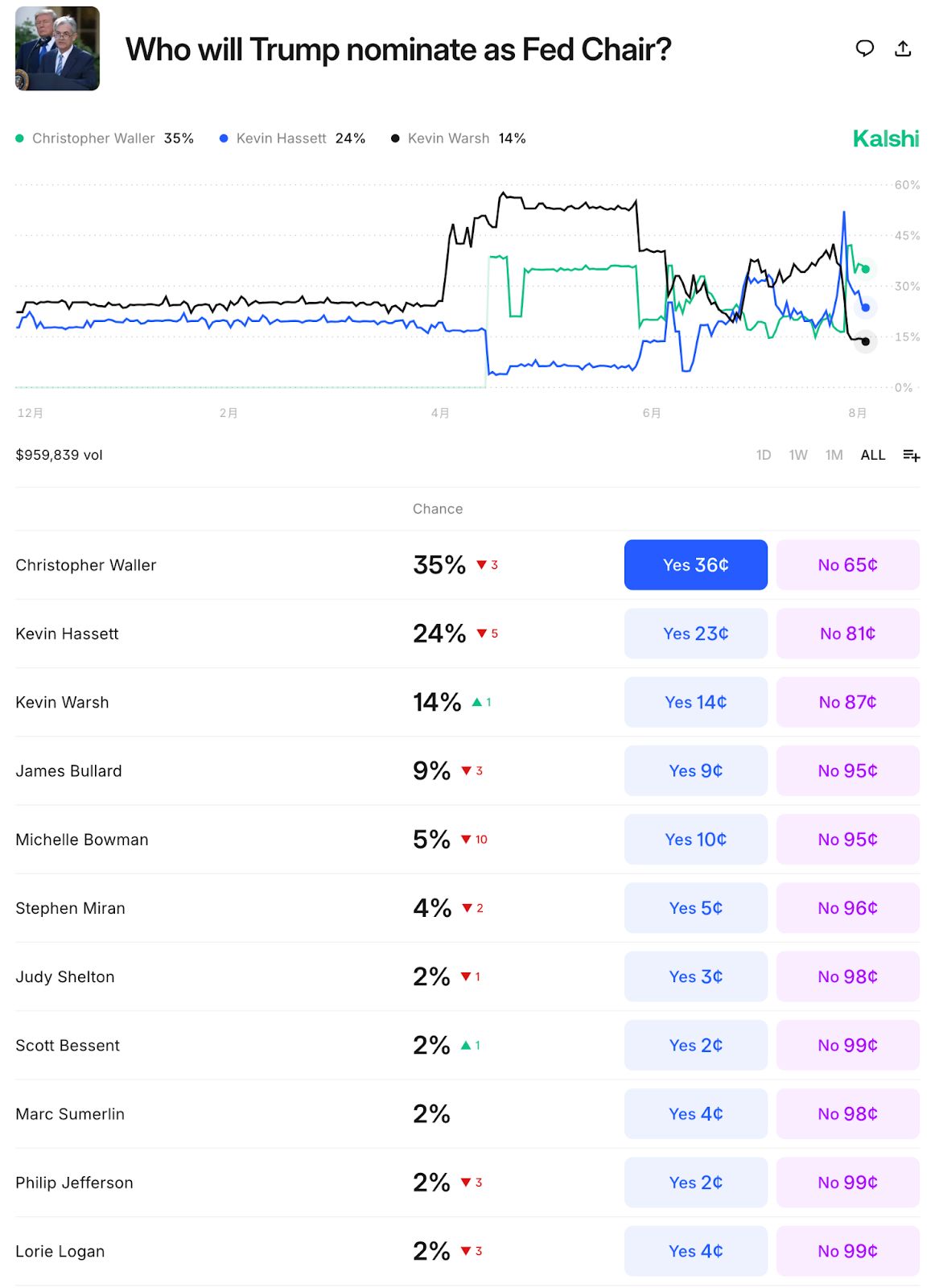Trump Expands Fed Chair Search — Who Will Lead the Central Bank? Multiple Candidates Emerge

TradingKey - With current Federal Reserve Chair Jerome Powell’s term set to expire in May 2026, the Trump administration has begun broadening its search for a successor, formally launching a selection process for the next Fed chair.
In addition to Powell, several current Fed officials are under consideration: Vice Chairs Michelle W. Bowman and Philip N. Jefferson, as well as Lorie Logan, President of the Dallas Federal Reserve.
According to informed officials, Treasury Secretary Scott Bessent will conduct interviews with potential candidates over the coming weeks and present a shortlist to President Trump, who is expected to personally evaluate the finalists.
Other names under review include:
- Kevin A. Hassett, former Chair of the Council of Economic Advisers under Trump
- Christopher J. Waller, Federal Reserve Governor
- Marc Sumerlin, economic advisor to President George W. Bush
- Kevin M. Warsh, former Fed Governor
- James Bullard, former President of the St. Louis Fed

[Source: Kalshi]
Notably, Warsh was previously considered for the role in 2017 but ultimately lost out to Powell. Bullard, meanwhile, is Waller’s former supervisor and was instrumental in recommending Waller for his Fed governorship.
The vacancy left by Governor Adriana Kugler has been temporarily filled by Trump’s nomination of Stephen Miran, Chair of the White House Council of Economic Advisers, pending Senate confirmation. With the full Board of Governors not yet staffed, the Trump team believes there is no urgency to finalize the chair selection. While Powell could remain on the Board as a governor until 2028, he has not publicly indicated whether he intends to seek reappointment — adding uncertainty to his future.
The candidates represent a wide range of policy views:
- Bowman and Waller both voted in favor of a rate cut at the July FOMC meeting, opposing the current high-rate stance — aligning closely with Trump’s repeated calls for lower interest rates.
- Jefferson, appointed by Biden, has supported holding rates steady. If selected, he would become the first Black chair in Fed history.
- Logan is gaining attention as the Dallas Fed regains its voting seat on the FOMC in 2026, enhancing her influence. She has also been vocal about inflation risks posed by tariffs, drawing notice from policymakers.
Trump has long criticized Powell for being “too slow to cut rates” and has repeatedly pressured the Fed publicly. While Powell remains technically eligible for reappointment, his path to a second term faces growing political headwinds.
Among the contenders, Waller has gained favor within the Trump team for his clear policy framework and deep understanding of central bank operations. Hassett has already discussed the chair role directly with the president. Warsh, despite losing the 2017 nomination, brings extensive experience and institutional knowledge.
The choice of the next Fed chair will not only shape the future of U.S. monetary policy but also influence global confidence in the Fed’s independence and the credibility of American economic leadership. With the 2025 election approaching, this high-stakes personnel battle could redefine the trajectory of the U.S. financial system.







